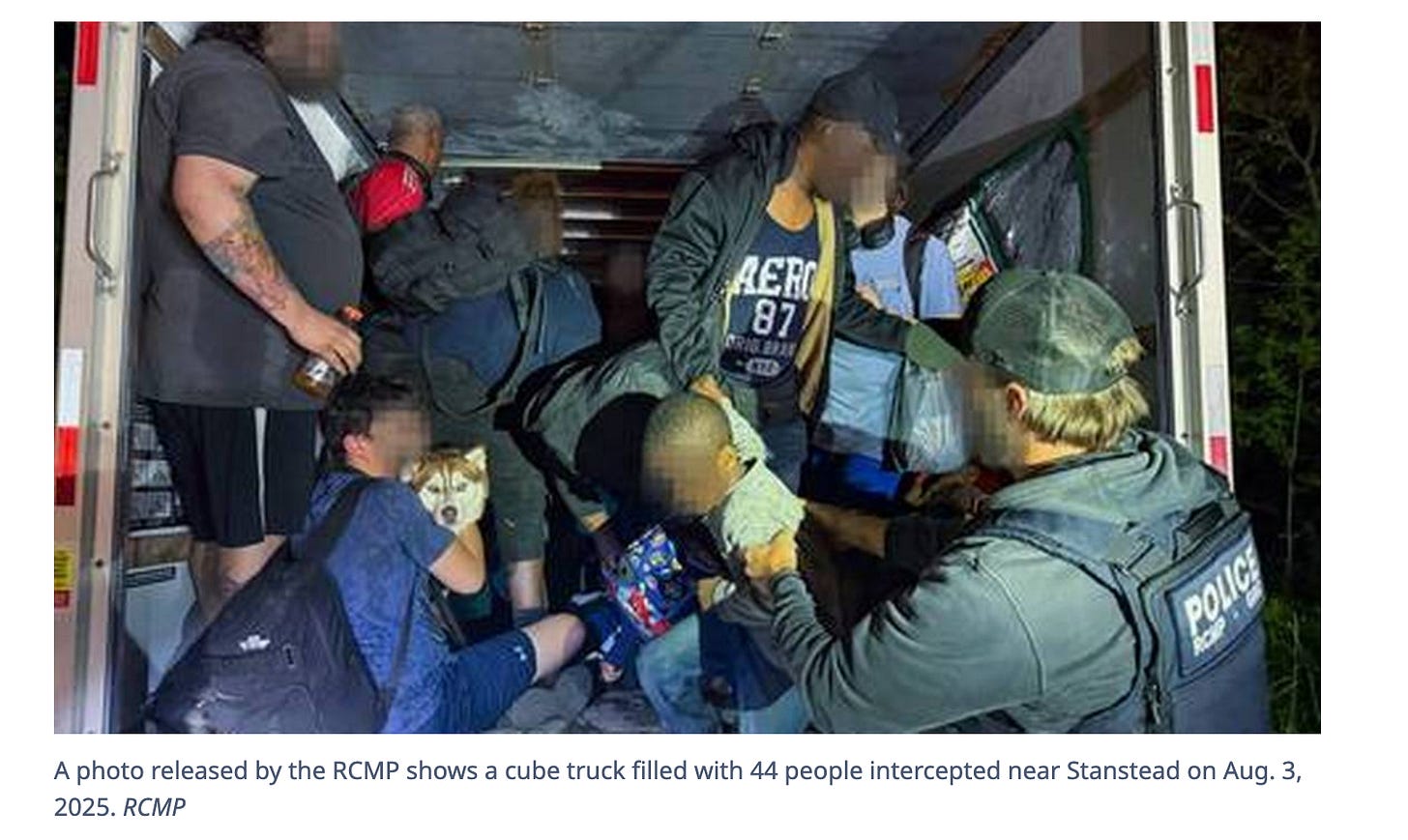Fourth Alleged Smuggler Busted in Dramatic Vermont-to-Quebec U-Haul Human Smuggling Operation
Background based on reporting by Jack Wilson for the Montreal Gazette and follow-up by VTDigger and WCAX
The Incident in Context
A recent human smuggling case that directly impacts Vermont’s border communities made headlines when a U‑Haul truck packed with 44 migrants was intercepted just north of Derby Line. According to the Montreal Gazette, published August 12, 2025, a fourth suspect, Tolga Yilmaz, 35, was arrested on August 8 at Montreal airport as he attempted to leave Canada
How It Unfolded
The Royal Canadian Mounted Police (RCMP), acting on a tip, intercepted the cube truck at approximately 2:20 a.m. on August 3, just south of Stanstead—mere minutes from Vermont’s Derby Line crossing. Inside were the 44 migrants, including a 4‑year‑old child and a pregnant woman, in dangerously hot and cramped conditions. Many were dehydrated and described the experience as “like a closed box,” barely able to breathe.
Their journey reportedly involved walking several miles through forested terrain in the U.S., wading through waist‑high water, before boarding the truck on the Canadian side. Temperatures had dropped, and police provided blankets, water, and food upon finding them.
Arrestees and Legal Status
Initially, three individuals—Ogulcan Mersin (25), Dogan Alakus (31), and Firat Yuksek (31)—were apprehended on charges of aiding and abetting immigration offenses and assisting people to enter Canada outside official customs openings. They are currently detained in Sherbrooke pending a bail hearing set for August 28 .
According to the Montreal Gazette, the subsequent arrest of Yilmaz on August 8 now brings the total suspects in custody to four.
Border Crossing and Vermont Connection
This incident hits home for Vermonters—particularly those near Derby Line and other rural crossings. It marks another instance where migrants cross unofficial points, bypassing customs and border checkpoints, reach Canadian side, and become vulnerable to smugglers. One RCMP spokesperson noted the growing trend of smugglers waiting on the Canadian side following the closure of other informal crossings.
Humanitarian Concerns
VTDigger’s Auditi Guha painted a sobering picture of the migrants’ perilous journey—forced through forests, waist‑high water, and extreme heat, arriving cold, wet, and desperate. Many of the migrants—primarily from Haiti—ended up at the Canada Border Services Agency’s refugee processing center in Saint‑Bernard‑de‑Lacolle, where they are undergoing individual immigration assessments. Several have reportedly been returned to the U.S.
Political and Regional Ramifications
The case has drawn attention from policymakers. In Vermont, Senator Peter Welch’s office responded, noting efforts to coordinate with stakeholders, and emphasized that reversals of Temporary Protected Status for Haitian citizens exacerbate the crisis .
Meanwhile, Canadian authorities reaffirm that agencies like CBSA and RCMP continue to disrupt human smuggling networks and enforce border laws.
What This Means for Vermont
Heightened Awareness: Border communities—especially in northern Vermont—should remain alert to similar smuggling attempts given their proximity to informal crossing points.
Humanitarian Readiness: Local organizations, such as refugee resettlement groups, may increasingly engage as migrants present with trauma and urgent needs.
Policy Implications: This case feeds into wider debates around immigration enforcement, asylum procedures, and the impact of U.S. policy shifts on migratory patterns.



